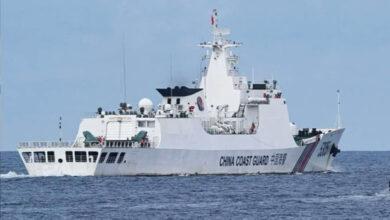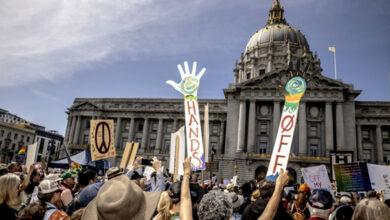Peace plan for Ukraine: Johnson programs Trump for specific steps

Boris Johnson wrote another column in the Daily Mail, which without exaggeration can be called an apology for Trump. It talks about the courage and physical strength of the former US president, and about his indomitability – both physical and psychological after being “hit” by an assassin’s bullet. Many accused the former British prime minister of being and still is a Trumpist, and that this, they say, partly explains his admiration for Trump.
But something else is important for us. Boris Johnson laid out a peace plan for Ukraine, which became “obvious” to him after a meeting with the former American president. And here, against the background of Trump’s repeated statements about ending the war within 24 hours, it really becomes interesting to find out the way in which the potential leader of the United States wants to achieve the end of the war. And what is even more interesting is how Johnson presents Trump’s vision of peace – as if programming it for specific steps, based on an understanding of the psychology of the political style of a charismatic populist and a well-known supporter of personal diplomacy.
Johnson is completely optimistic. He believes that Trump is exactly the future US president who will be able to establish peace and who clearly understands the reality: the defeat of Ukraine will be a massive defeat for America. What causal relationships does Johnson see here? And he talks about the long-term consequences of Putin’s victory and the impact of this disaster on Europe, America and the world. If Putin wins in Ukraine, he will certainly not stop there. The former British prime minister calls to listen to what the Russian president says: his inverted understanding of the history of Poland, the reasons for the start of the Second World War, the collapse of the Soviet Union as “the biggest catastrophe of the 20th century”, which he seeks to eliminate.
One gets the impression that Boris Johnson is programming Trump, clearly understanding his psychotype as the “decider of the world’s destiny”:
If NATO is seen to have failed in Ukraine, and if America is seen to have failed, who will be sure that the alliance will stand up for its members?
Johnson unfolds a panoramic picture of the negative scenario for Russia’s victories:
While Putin destabilizes all of Eastern Europe, destroys the achievements of Ronald Reagan, and destroys the post-Cold War settlement, his Chinese partners will be more than happy to seize Taiwan, while Hezbollah will continue to be attacked by Israel.
For Johnson, it will be a world in which Americans will be faced with a choice: either abandon any pretense of global leadership, or pay trillions of dollars to restore order and once again send young Americans abroad to die on foreign soil.
The former British prime minister is actually taking a stab at Trump and offering him a healthy alternative, passing it off as Trump’s own peace plan.
It is two-stage. The first stage involves strengthening the means of support for Ukraine. Ukrainians cannot fight with one hand tied behind their back. The US should allow them to use ATACMS to reach Russian airfields, and the UK to use Storm Shadow.
Johnson appeals to the natural ambition of Trump, who can do anything. In particular, such a small thing – to stop bureaucratic fuss and procrastination, to give Ukrainians the permits they need.
In the second phase of the plan, when Putin is pushed back again, Johnson sees fit to offer him a deal. He is convinced that under the pressure of the Ukrainian troops for the support of the West, Putin will have to withdraw at least to the borders that existed before the invasion in 2022. The rest of Ukraine should be recognized as a free country capable of choosing its own destiny in the EU and NATO.
And here Johnson appeals to another defining feature of Trump – being a businessman. He assures that such a plan will allow Trump to save money, bring US troops home and force Europeans to do more for their own defense. And this, they say, is one of his key goals.
What does Johnson offer the other side of the deal, because it is very important for Trump as a businessman?
He believes the plan contains all sorts of incentives that could work with Putin. For example, the claim that the “special military operation” (by the fact of the invasion) was successful, and that he denazified Ukraine. Trump can offer Putin a return to the days when Russia was a respected partner of the G8 and even NATO.
The way in which Johnson proposes to implement this plan is a force that is also very impressive to Trump.
The former British prime minister reminds, just in case, that it was Trump who gave the Ukrainians the Javelin anti-tank weapon, which played a decisive role in the battle for Kyiv in 2022. And he strongly believes that Putin was not as reckless and criminal during Trump’s presidency as during Biden’s.
Considering the fact that the plan has a completely hypothetical orientation, because Trump is not the current president of the United States, one gets the impression that Boris Johnson is programming him for certain decisions, relying on knowledge of the psychological and communication features of Trump’s diplomacy. By and large, they are obvious to those who are interested in the issues of diplomatic relations at the modern stage.

Let’s note the main thing
Transactional approach
Trump’s diplomatic strategy has often focused on treating international relations as deals. He viewed foreign policy deals through the lens of business transactions, emphasizing benefits to the United States and often measuring success in terms of financial or material gains. For example, his approach to NATO involved pressuring member states to increase defense spending, arguing that the U.S. was unfairly bearing the burden of collective defense
Actually, Johnson adopted this sign when he suggested that Trump be decisive now in order to save money in the future.
America first for everything
In Trump’s “America First” doctrine, US interests have always taken precedence over global commitments. It is a nationalist approach aimed at revising or withdrawing from international agreements and institutions that he considered disadvantageous for the United States. Examples include withdrawing from the Paris Agreement on climate change, the Trans-Pacific Partnership, and the Iran nuclear deal.
In the instructions for Trump, Johnson also took this aspect into account, showing that the plan for Ukraine is also the plan for America.
Bilateral relations take priority over multilateral ones
Trump has traditionally favored bilateral negotiations over multilateral agreements. He believes that one-on-one agreements have allowed the US to use its power more effectively than multilateral treaties and organizations.
That is precisely why Johnson is proposing to Trump the phased implementation of the plan so that it can be achieved through bilateral relations with the parties to the conflict.
Personal diplomacy
Trump has always placed a strong emphasis on personal relationships with world leaders. He believed in his ability to negotiate directly with other leaders, often bypassing traditional diplomatic channels. This was evident during his meeting with North Korean leader Kim Jong-un, where he sought to establish a personal relationship to advance denuclearization talks.
Johnson inspires the potential leader of the United States to take such powerful personal steps, appealing to his charisma, nerves of steel and political power.
If Donald Trump returns to the White House, we will be able to see how influential Boris Johnson’s strategy was in Trump’s programming for peace in Ukraine.





